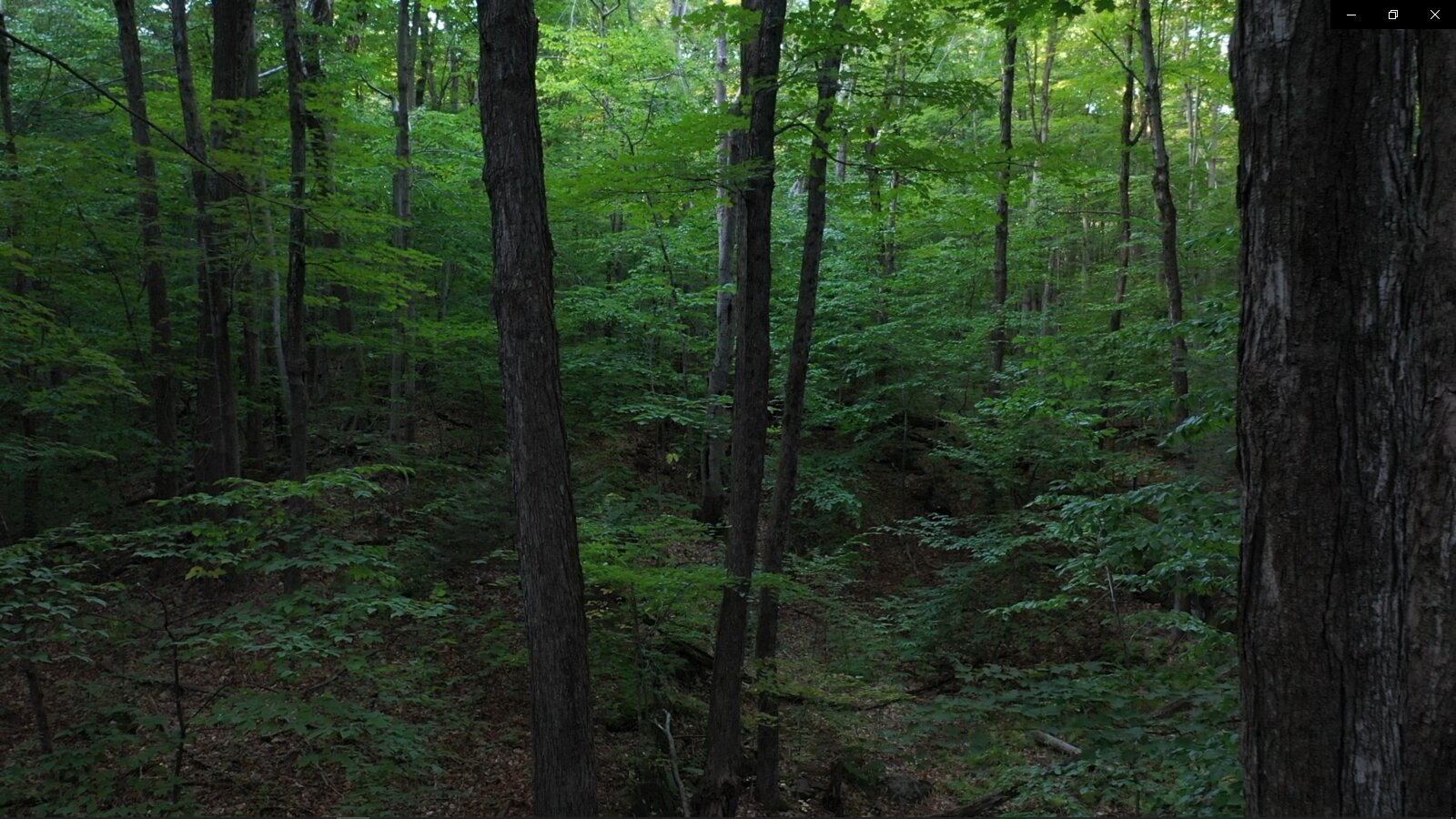
While one might imagine that the forest above has reached maturity, in reality it is still in an early phase of development
Like almost all woodlands in Massachusetts, it was probably cleared at least twice since the mid-1700s, and is only 60 - 80 years old. While situated on a rich site and growing well, it is still in the early days of its development into a diverse, mature ecosystem. If left alone, it will continue to develop into a mature ‘old growth’ forest ecosystem. Occasionally a natural disturbance will move through in the form of fire, storms, insects or disease. These disturbances will create large and small gaps in the canopy, which will in turn provide opportunities for new trees to take root. The large and medium sized trees which fall down and rot will provide essential habitat and nutrients to complete the ecosystem. What this means is that a true old growth forest does not contain only old trees, but a mix of very old to very young.
There is a need for more old growth forests in the Northeast. However, humans will not suddenly cease needing wood products. And outsourcing our timber needs can put pressure on countries and societies without the management oversight of the United States, resulting in greater destruction than if we harvest sustainably close to home.
Maintaining a balance
The horse logging we practice aims to mimic, and in some cases accelerate, the natural growth / disturbance cycle.
The simplest way to summarize the harvesting philosophy of most horse loggers is ‘worst first’. Often in cooperation with a professional forester, we select trees to harvest which will likely not survive into maturity and carefully remove them in a time and manner which minimizes damage to the remaining forest. By selecting trees or groups of trees intelligently, we create gaps in the canopy which allows sunlight to reach the forest floor and grow the next generation. I hope to never have to harvest the most valuable trees in your woods. But if I (or someone with a bit more horsepower) someday does need to harvest a giant, I hope that the management choices that you’ve made today will mean that only one will need to go, as opposed to four or five of lesser value in an unmanaged woodland.
Also
Horse logging is fun, beautiful, and a great way to connect people with the larger concepts of ecology, forestry, and conservation.